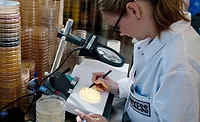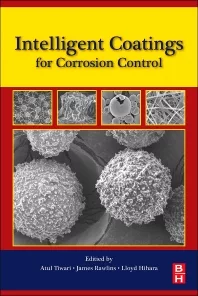MCEC Raises Awareness of Microbial Control Technologies

Microorganisms are a part of our everyday lives. Some are good, and necessary. Others can be harmful, and need to be controlled. PCI recently discussed the role, goals and efforts of the Microbial Control Executive Council (MCEC) with the Council’s Chairman, Michael Schäfer of LANXESS.
PCI: What is the MCEC?
Schäfer: The MCEC is an organization comprised of six of the world’s leading companies developing microbial control technologies. The six companies include: LANXESS, Troy, Lonza, Dow, BASF and ICL. It is currently chaired by myself, and vice-chaired by Troy’s W. Brian Smith. MCEC is a sector-group of Cefic, the European Chemical Industry Council (EU Transparency Register: 64879142323-90) and operates in full compliance with European Competition Laws. It has been active in providing valuable and up-to-date information to industry and policymakers since its foundation. MCEC aims to outline the benefits of microbial control and how it is needed to protect and prevent paints from breaking down during storage and losing viscosity, texture and adhesion ability. Despite this, people know very little about the benefits these technologies bring. This is why MCEC was founded. We are dedicated to educating different stakeholders about the benefits and safe use of microbial control technologies to ensure their continued availability.
PCI: How is the MCEC structured?
Schäfer: The management of MCEC is shared on a rolling basis, with the Chair of the organization rotating between the different member companies. The members frequently liaise and hold meetings in Brussels (and elsewhere) to discuss recent developments, future activities and upcoming opportunities.
PCI: What is unique about the Microbial Control Executive Council?
Schäfer: MCEC is unique in the sense that it facilitates the coming together of the largest biocide-producing companies in the world with the common goal of promoting the benefits of antimicrobial solutions. The group was established with the aim of communicating the societal benefits, safe handling and use of antimicrobial technologies. Our members stand together to promote, meet and uphold the regulatory requirements set out by EU chemical authorities, as well as to contribute to the debate around chemicals in society.
PCI: What are the issues of importance to the MCEC?
Schäfer: Key issues for MCEC members include making sure that microbial-control technologies are appropriately developed and sustainably used, while ensuring technological advancement continues into the future. This is supported by our aim to inform as many sectors as possible about the importance of microbial control, and thus promote the benefits and solutions that antimicrobials bring. In addition to this, MCEC strives to inform our target audiences about the challenges facing society. MCEC members want to make sure that information about microbial control technologies is easily accessible and understandable. In addition to this, the MCEC wishes to ensure that EU chemicals regulations are met and upheld to the highest standard, while also actively contributing to the dialogue around chemicals, human safety and the environment.
PCI: How does the MCEC engage with its key audiences?
Schäfer: The MCEC has a number of different ways of communicating its message. The primary tool for communicating with our target audiences is through online engagement and attending relevant industry events. Following the MCEC’s formation, the organization created an online information center that gives visitors access to up-to-date and relevant information on how biocides help contribute to a healthier and safer environment. The information center provides an overview of how antimicrobial technology improves our world through a wide range of applications such as paints and coatings, marine shipping, wastewater management, and oil and gas recovery. Additionally, the MCEC has an active LinkedIn page where its activities are shared with the page’s followers.
Recently, the MCEC has engaged with industry and downstream users by attending large industry-led events such as the European Coatings Technology Forum in Berlin, Germany, where the MCEC presented the benefits of microbial control technologies. MCEC also attended the American Coatings Show in Indianapolis, Indiana, and the Association of Water Technologies (AWT) Congress in Orlando, Florida. At these events, MCEC literature is distributed to raise the awareness around the importance of antimicrobial technologies and the various solutions offered by biocides. The MCEC also distributes a bi-annual newsletter to subscribers with brief updates on recent activities and future actions. If you are not already subscribed, please do so!
PCI: What does success look like for MCEC over the coming years?
Schäfer: MCEC is trying to make a real impact on the way in which microbial control technologies are viewed. Despite the unparalleled advantages brought by antimicrobials, very few people are aware of the role they play in a variety of applications across society. For example, the development of antimicrobials in materials such as paint and various types of coatings have been paramount to sustainability efforts. Our goal for the coming years is to successfully promote the safe and sustainable use of biocides in a broad range of applications, as well as communicating how innovation has contributed to the improvement of the safety and sustainability of biocides.
PCI: What challenges face the industry in the future with regard to biocide regulation?
Schäfer: European chemicals legislation is often regarded as the most ambitious in the world, and is aimed at ensuring the highest level of protection possible to the environment and human health. Despite all the legal requirements for industry to adhere to the regulations in place, ensuring human and environmental safety has always been a core belief and practice of the Microbial Control Executive Council’s member companies. However, given the length of the application process and the considerable costs involved in the registration of new substances, it has become difficult for biocide-producing companies to justify investing in the innovation of new active substances. Without the continued production of high-quality biocides, alongside the continued removal from the market of existing biocides as a result of EU legislation, the availability of effective chemicals is dwindling. This may result in the deterioration of paints and coatings on a number of different applications, ultimately leading to increased waste and products being landfilled or incinerated, food waste increasing and problems with infection control in hospitals.
PCI: What role does the organization play in contributing to the debate around biocides regulation?
Schäfer: The MCEC believes that an overall understanding of the importance of biocides, and the subsequent benefits brought to our everyday lives, needs to be taken into consideration when dealing with antimicrobial technologies. Antimicrobial technologies are part of the solution to the development of a sustainable and greener economy. Biocides help manage energy costs, reduce waste by increasing the durability of products and also help keep the EU’s citizens safe. The MCEC encourages policymakers to take a holistic approach to regulating biocides and welcomes an open discussion with authorities about the challenges ahead. In recent years, a debate has emerged over a hazard- vs risk-based approach employed by different policymakers across the EU without truly reflecting on the benefits brought by such products. With this in mind, the MCEC has made it its mission to provide accurate and up-to-date information to policymakers in an attempt to focus on the key facts. The MCEC is active in communicating on the added value of biocides through events and online engagement. The organization provides comprehensive and convenient information on how microbial control helps us to create a healthier and safer environment, and details how microbial control improves our world through a wide range of industries and sectors, e.g., disease and infection control, marine shipping, paints and coatings, wastewater management, or oil and gas recovery. Thus, the MCEC fulfils the role of informing policymakers, industry players and the scientific community of the benefits antimicrobial technologies bring to society.
PCI: Why is it important for MCEC to talk about regulation?
Schäfer: As I previously mentioned, factors such as the Biocidal Products Regulation and other chemicals legislation can sometimes act as significant barriers to the development of new active substances, meaning that society faces a future with fewer alternatives on the market. Talking about regulation in an informative way should mean that awareness around this problem has increased. Currently, the debate regarding whether a hazard- or risk-based approach should be employed by policymakers across the EU means the benefits of products are not truly reflected on. Non-approval decisions are then made on purely intrinsic properties but do not take into account the negligible real risk for humans and the environment.
For more information, contact Paul Anselme, Manager Specialty Chemicals, Cefic, +32.2.676.73.27 or e-mail pan@cefic.be.
Looking for a reprint of this article?
From high-res PDFs to custom plaques, order your copy today!





-personnel-announcements-(1).webp?height=200&t=1681478349&width=200)



